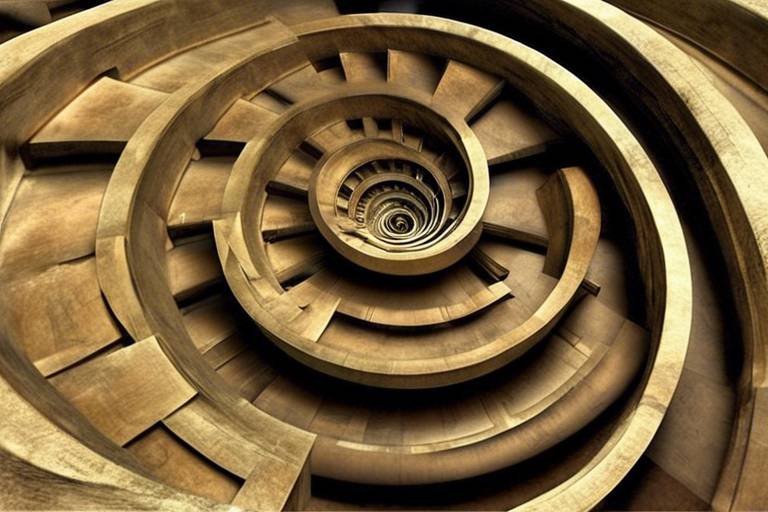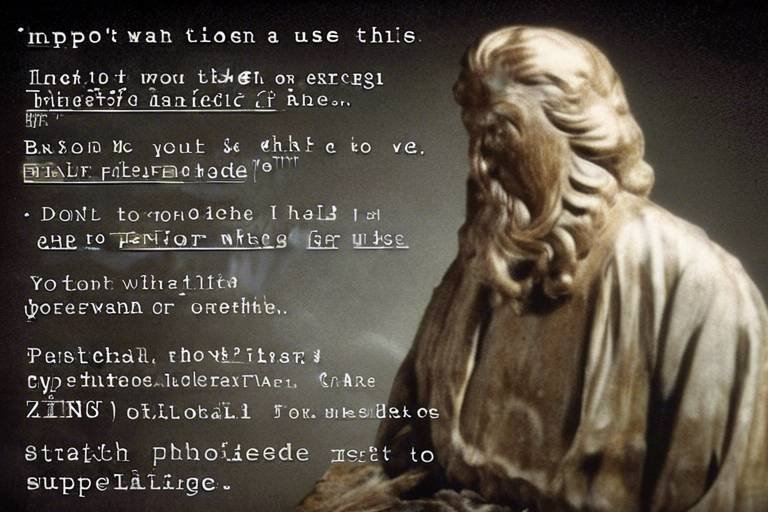The Philosophy of Acupuncture – Substantiating the Science
Acupuncture is not just a method of inserting needles into the skin; it is a profound philosophy that intertwines with the very fabric of health and wellness. This ancient practice, rooted in thousands of years of history, offers a unique perspective on the human body and its connection to nature. Imagine your body as a complex network, much like a city with roads, highways, and traffic lights. Just as traffic flows smoothly when everything is in order, your body's energy, or "Qi," flows best when there are no blockages. Acupuncture aims to restore that flow, ensuring that your body functions optimally.
The philosophical underpinnings of acupuncture are steeped in the principles of Yin and Yang, the concept of balance and harmony. These principles suggest that health is a dynamic equilibrium between opposing forces. When our lives become unbalanced—be it through stress, poor diet, or lack of exercise—our bodies can manifest symptoms of illness. Acupuncture seeks to restore this balance by stimulating specific points on the body, known as acupoints, which correspond to various organs and systems. Think of it as a tuning fork that helps realign the dissonance of your body’s energy.
Furthermore, acupuncture is deeply embedded in the practice of Traditional Chinese Medicine (TCM), which encompasses a holistic view of health. TCM sees the body not just as a collection of parts but as an integrated whole where emotional, physical, and spiritual health are interlinked. This holistic approach is particularly relevant today as more people seek comprehensive solutions to their health issues, rather than just treating symptoms. By addressing the root cause of ailments, acupuncture provides a pathway to long-term wellness.
In recent years, the scientific community has begun to take a closer look at acupuncture, and the results are promising. Studies have shown that acupuncture can be effective in treating a variety of conditions, including chronic pain, migraines, and even anxiety. This shift towards scientific validation is crucial, as it helps bridge the gap between ancient wisdom and modern medicine. But how does acupuncture actually work? What mechanisms are at play when a needle is inserted into the skin?
This article will delve into the intricate world of acupuncture, exploring its historical context, scientific validation, and practical applications in modern healthcare. We will also address common misconceptions surrounding this practice, ensuring that readers gain a comprehensive understanding of acupuncture's benefits and its holistic approach to health. So, are you ready to explore this fascinating intersection of philosophy and science? Let’s dive in!
- What is acupuncture? Acupuncture is a traditional Chinese medicine practice that involves inserting thin needles into specific points on the body to promote healing and balance.
- Is acupuncture safe? Yes, when performed by a qualified practitioner, acupuncture is generally considered safe and has minimal side effects.
- What conditions can acupuncture treat? Acupuncture can be effective for various conditions, including chronic pain, migraines, anxiety, and digestive issues.
- How does acupuncture work? Acupuncture works by stimulating the body's energy pathways, promoting natural healing and restoring balance.
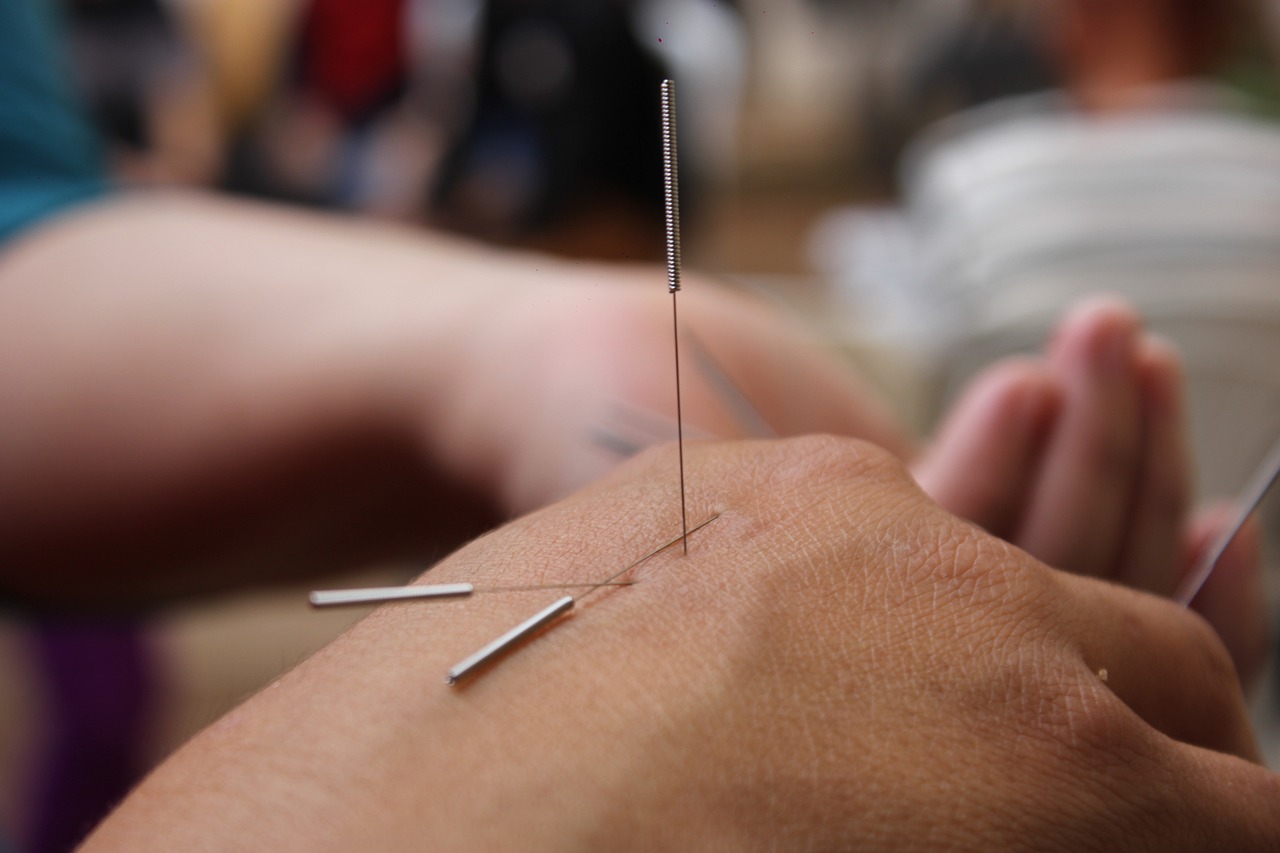
The Historical Roots of Acupuncture
Acupuncture, a practice that has captivated the minds and bodies of millions, boasts a rich history that stretches back over two millennia. Its origins can be traced to ancient China, where it was believed that the body’s health depended on the harmonious flow of energy, or "Qi" (pronounced "chee"). This concept of Qi is fundamental to understanding acupuncture's philosophy and its development as a healing art.
Historical texts, such as the Huangdi Neijing (The Yellow Emperor's Classic of Internal Medicine), dating back to around 100 BCE, provide the earliest documentation of acupuncture practices. These texts not only describe the techniques but also delve into the philosophical underpinnings that connect the body to the universe. They emphasize that health is a balance between Yin and Yang, the two opposing forces that must be in equilibrium for optimal well-being.
Throughout the centuries, acupuncture evolved, incorporating various theories and techniques. By the time of the Han Dynasty (206 BCE – 220 CE), acupuncture had become a recognized method of treatment, with practitioners honing their skills and expanding their knowledge. It was during this period that the first acupuncture needles were made from bronze, allowing for more precise and effective treatment.
As acupuncture spread beyond China, it began to absorb influences from other cultures. In Japan, for instance, practitioners adapted the techniques, focusing on gentler methods and integrating them with local healing traditions. This cross-cultural exchange enriched acupuncture, leading to the development of distinct styles and practices.
Today, acupuncture is not just a relic of the past but a dynamic and evolving field. It has been embraced by various cultures and integrated into modern healthcare systems worldwide. The ancient wisdom of acupuncture continues to resonate, reminding us of the importance of treating the body holistically. This holistic approach acknowledges that our physical health is intertwined with our emotional and mental well-being, a principle that is increasingly recognized in contemporary medicine.
The journey of acupuncture from its ancient roots to its place in modern healthcare is a testament to its enduring relevance. As we explore its historical context, we uncover a tapestry of beliefs, practices, and cultural exchanges that have shaped acupuncture into the art and science it is today.
In summary, the historical roots of acupuncture reveal not only its significance in traditional Chinese medicine but also its adaptability and resilience through the ages. As we continue to study and understand this ancient practice, we find that its principles remain applicable in our quest for health and balance in a fast-paced world.
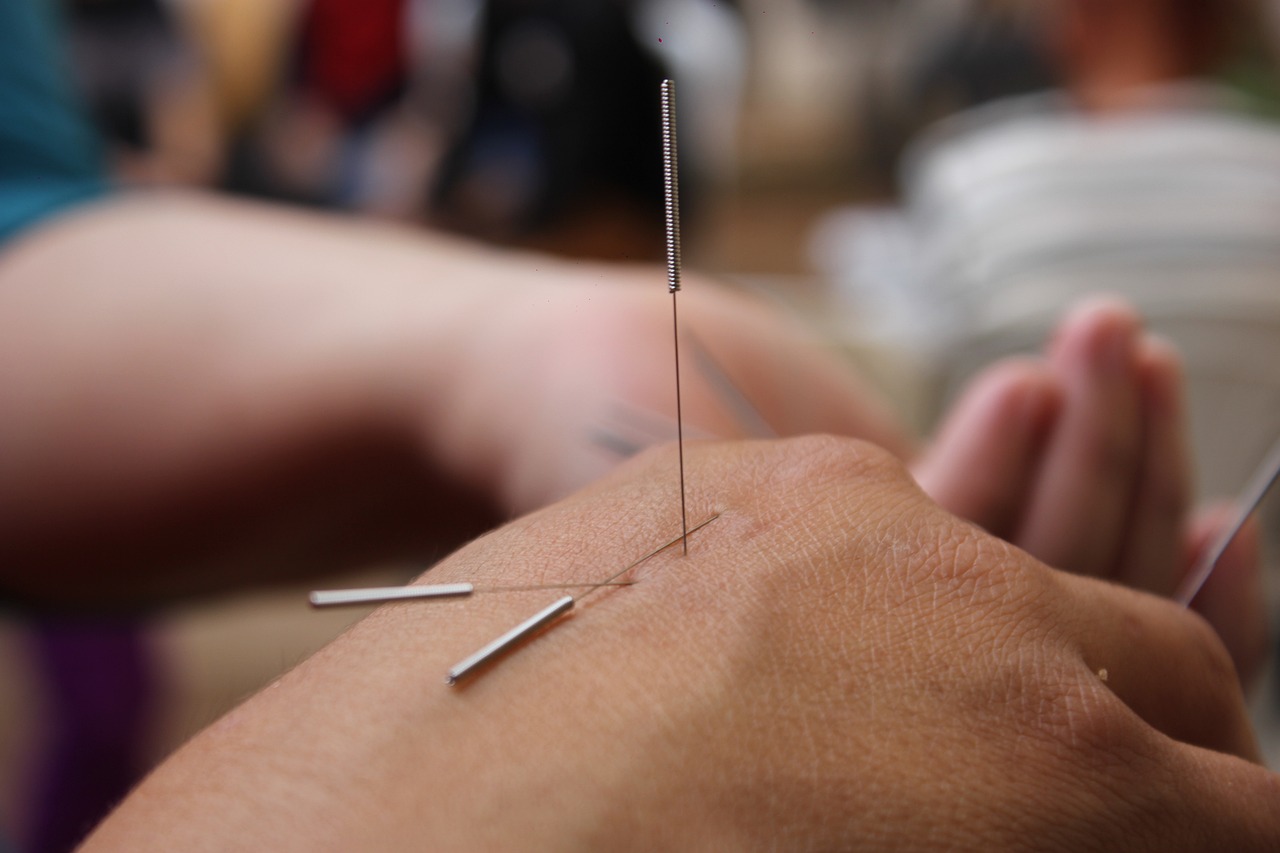
Scientific Validation of Acupuncture
In recent years, the scientific community has made significant strides in validating acupuncture as a legitimate therapeutic practice. This ancient technique, rooted in traditional Chinese medicine, has often faced skepticism due to its mystical origins and the lack of Western scientific frameworks to explain its efficacy. However, a growing body of research is now shedding light on the mechanisms behind acupuncture, revealing its potential benefits for a variety of health conditions.
Numerous clinical studies have been conducted to assess the effectiveness of acupuncture. For instance, a meta-analysis published in the Journal of Pain found that acupuncture significantly reduced chronic pain conditions, such as lower back pain, osteoarthritis, and migraines. This analysis compiled data from over 20,000 patients and concluded that acupuncture not only alleviated pain but also improved overall quality of life. The results have encouraged healthcare professionals to consider acupuncture as a viable option for pain management.
To further understand how acupuncture works, researchers have explored its physiological effects. One of the key mechanisms identified is the release of endogenous opioids, which are natural pain-relieving chemicals produced by the body. When acupuncture needles are inserted into specific points on the body, they stimulate the nervous system, triggering the release of these opioids. This process not only helps in pain relief but also promotes a sense of well-being and relaxation.
Acupuncture's mechanisms of action can be broken down into several key components:
- Neurotransmitter Release: Acupuncture has been shown to influence the release of neurotransmitters such as serotonin and dopamine, which play crucial roles in mood regulation and pain perception.
- Nervous System Modulation: By stimulating specific acupuncture points, the treatment can modulate the autonomic nervous system, helping to balance the body’s response to stress and pain.
- Increased Blood Flow: Acupuncture can enhance circulation in the treated areas, promoting healing and reducing inflammation.
Delving deeper into the neurological aspects, studies utilizing functional MRI (fMRI) technology have demonstrated that acupuncture can alter brain activity. For example, one study observed changes in the brain's pain-processing centers when patients received acupuncture treatment. The findings suggested that acupuncture might recalibrate the brain's perception of pain, leading to long-lasting relief for chronic pain sufferers.
Moreover, acupuncture triggers a series of biological responses that contribute to its healing effects. Research indicates that acupuncture can enhance immune function, helping to combat infections and promote recovery from illness. Additionally, it has been linked to improved circulation, which is vital for delivering nutrients and oxygen to tissues, further aiding in the healing process.
As we continue to uncover the scientific validation of acupuncture, it becomes increasingly clear that this ancient practice is not just a placebo effect or a relic of the past. Instead, it represents a powerful tool in modern medicine, capable of addressing a wide range of health concerns. By bridging the gap between ancient wisdom and contemporary science, acupuncture is carving out its place in the healthcare landscape, offering a holistic approach to wellness that resonates with many.
Q: Is acupuncture safe?
A: When performed by a qualified practitioner using sterile needles, acupuncture is generally considered safe. It is important to choose a licensed acupuncturist to minimize any risks.
Q: How many sessions of acupuncture are needed to see results?
A: The number of sessions varies depending on the individual and their specific condition. Some may experience relief after just one session, while others might require several treatments to achieve optimal results.
Q: Can acupuncture be used alongside other treatments?
A: Yes! Acupuncture is often used as a complementary therapy alongside conventional medical treatments, enhancing their effectiveness and helping to manage side effects.

Mechanisms of Action
When we delve into the behind acupuncture, it’s like peeling back the layers of an onion, revealing a complex yet fascinating interplay of physiological processes. At its core, acupuncture is more than just inserting needles into specific points on the body; it’s about stimulating the body's own healing mechanisms. One of the primary ways it achieves this is through the release of endorphins, the body’s natural painkillers. Imagine feeling a wave of relaxation wash over you, akin to the blissful sensation after a good workout—this is the endorphin effect in action.
Furthermore, acupuncture triggers the release of various neurotransmitters that play crucial roles in regulating mood and pain perception. For instance, serotonin, often dubbed the "feel-good" neurotransmitter, can be released during an acupuncture session, which may help alleviate symptoms of anxiety and depression. It’s almost like your body is getting a gentle nudge to restore balance and harmony from within.
But how does this all tie into the nervous system? Well, acupuncture stimulates specific points that correspond to different organs and systems in the body, sending signals through the nervous system. This process can enhance circulation and promote healing by ensuring that oxygen and nutrients reach the areas that need them the most. Think of it as a traffic system: acupuncture clears the congestion, allowing the body's vital resources to flow freely.
To further elucidate these mechanisms, studies have shown that acupuncture can modulate the brain's activity in ways that significantly alter pain perception. For example, functional MRI scans reveal that acupuncture can increase activity in areas of the brain associated with pain relief while decreasing activity in areas that process pain signals. This dual action can lead to a profound reduction in the sensation of pain, offering relief for conditions like chronic back pain, migraines, and arthritis.
Moreover, acupuncture has been shown to trigger biological responses that enhance overall health. These include:
- Improved Circulation: By promoting blood flow, acupuncture helps deliver essential nutrients and oxygen to tissues, facilitating healing.
- Enhanced Immune Function: Regular acupuncture sessions can boost the immune system, making the body more resilient against infections.
- Stress Reduction: By influencing the autonomic nervous system, acupuncture can help reduce stress levels, which is crucial for overall health.
In essence, understanding the mechanisms of action behind acupuncture not only demystifies its effects but also underscores its potential as a powerful tool for healing. When we appreciate how acupuncture interacts with our body’s systems, it becomes clear that this ancient practice is not just a relic of the past but a relevant and effective form of therapy in our modern health landscape.

Neurological Perspectives
When we delve into the neurological perspectives of acupuncture, we're stepping into a fascinating world where ancient practices meet modern science. It’s like peering through a window into how our brain and body communicate, revealing the intricate dance of signals that dictate our experiences of pain and healing. Acupuncture, often perceived as merely a method of inserting needles into specific points on the body, actually triggers a cascade of neurological responses that can significantly alter our state of well-being.
To understand this, let’s consider the role of the nervous system. When acupuncture needles are inserted, they stimulate sensory nerves located in muscles and other tissues. This stimulation sends signals to the brain, which then interprets these signals in a variety of ways. For instance, the brain may release a flood of endorphins, the body's natural painkillers, akin to how a soothing balm eases a burn. This release not only helps in pain relief but also promotes a sense of relaxation and well-being.
Moreover, research indicates that acupuncture can influence brain activity patterns. Functional MRI studies have shown alterations in brain regions associated with pain perception, emotional regulation, and even the body's stress response. It’s almost as if acupuncture acts as a conductor in an orchestra, harmonizing various neurological functions to create a symphony of healing. This orchestration can lead to a reduction in chronic pain, anxiety, and other conditions, making acupuncture a powerful ally in modern medicine.
Additionally, the effects of acupuncture extend beyond mere pain relief. By modulating neurotransmitter levels, acupuncture can enhance mood and promote mental clarity. Think of it as tuning a guitar; when the strings are tightened just right, the music flows beautifully. Similarly, when our neurotransmitters are balanced, our mental state can improve, leading to better emotional health and resilience against stress.
In summary, the neurological perspectives of acupuncture provide a compelling argument for its efficacy. By engaging with our body’s intricate communication systems, acupuncture not only alleviates pain but also fosters overall wellness. This holistic approach aligns perfectly with the growing recognition of integrative medicine, where the mind and body are seen as interconnected entities rather than isolated components.
- What conditions can acupuncture help with? Acupuncture is known to assist with various conditions, including chronic pain, anxiety, migraines, and digestive issues.
- Is acupuncture safe? When performed by a qualified practitioner, acupuncture is generally safe. It’s essential to ensure that needles are sterile and that the practitioner follows proper techniques.
- How many sessions are needed to see results? The number of sessions varies depending on the individual and the condition being treated, but many people start to notice improvements within a few sessions.
- Does acupuncture hurt? Most people report feeling minimal discomfort during needle insertion, often describing it as a slight prick or tingling sensation.
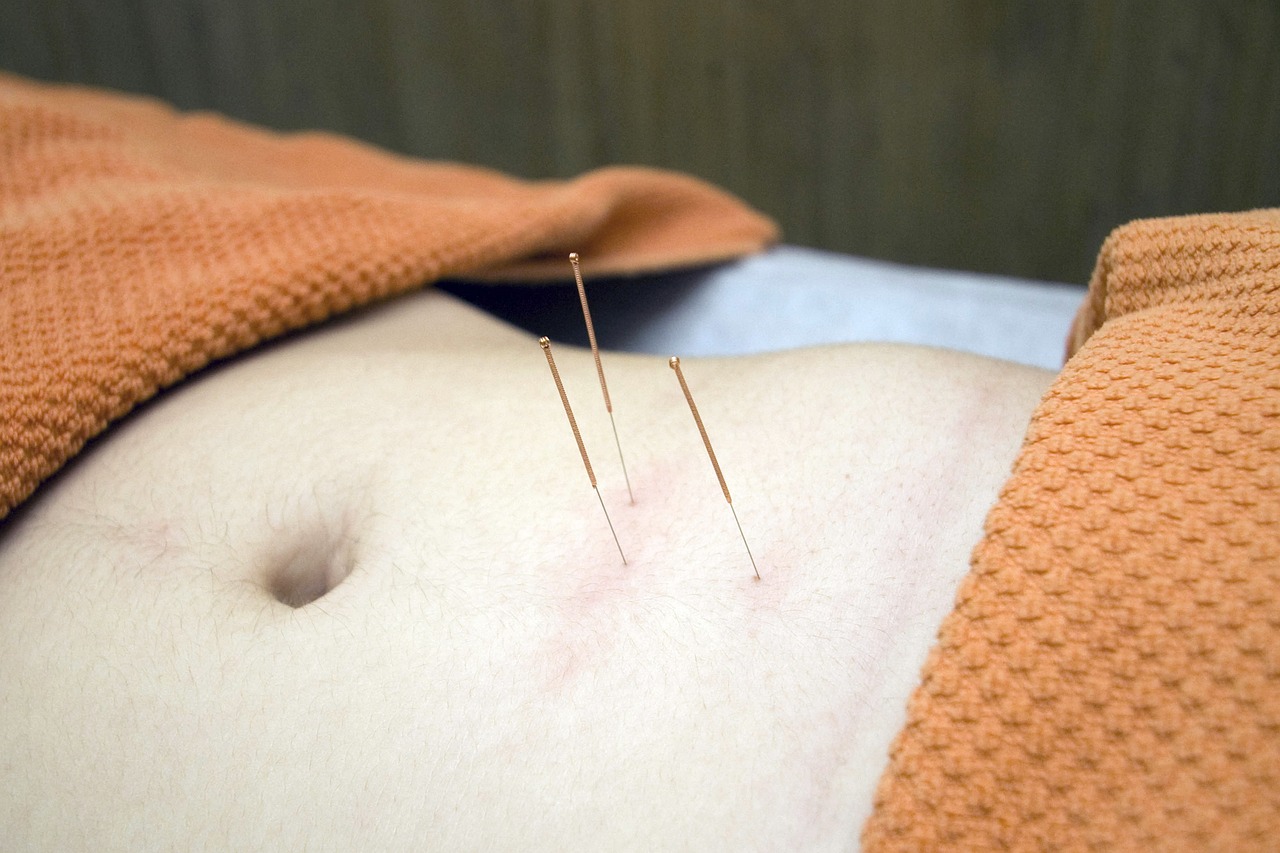
Biological Responses
Acupuncture is more than just a method of inserting needles into specific points on the body; it triggers a complex series of that play a crucial role in promoting health and healing. When a practitioner skillfully places needles in designated acupuncture points, they stimulate the nervous system, which in turn releases a cascade of neurotransmitters and endorphins. These chemicals are vital for pain relief and mood enhancement, acting as the body's natural painkillers.
One of the most fascinating aspects of acupuncture is its ability to improve circulation. By enhancing blood flow to the affected areas, acupuncture can help deliver essential nutrients and oxygen, facilitating the body’s natural healing processes. Additionally, improved circulation can aid in the removal of metabolic waste, thereby reducing inflammation and promoting recovery. This is particularly beneficial for individuals suffering from chronic pain conditions or injuries.
Moreover, acupuncture has been shown to elicit a positive response from the immune system. Research indicates that acupuncture can increase the production of white blood cells, which are essential for fighting off infections and diseases. This immunomodulatory effect is a significant reason why acupuncture is often recommended as a complementary treatment for various ailments, ranging from respiratory issues to autoimmune disorders.
To illustrate the biological responses triggered by acupuncture, consider the following table that summarizes key effects:
| Biological Response | Description |
|---|---|
| Neurotransmitter Release | Increases levels of serotonin, dopamine, and endorphins, enhancing mood and reducing pain. |
| Improved Circulation | Enhances blood flow to tissues, promoting healing and nutrient delivery. |
| Immune System Boost | Stimulates white blood cell production, improving the body’s defense against illnesses. |
| Reduction of Inflammation | Decreases inflammatory markers, aiding in pain relief and recovery. |
In addition to these biological responses, acupuncture also promotes a state of homeostasis—the body's natural balance. This holistic approach recognizes that emotional and physical health are intertwined. By addressing both aspects, acupuncture helps individuals achieve a more profound sense of well-being. It's akin to tuning a musical instrument; when all strings are in harmony, the music produced is rich and fulfilling. In the same way, acupuncture aims to harmonize the body’s systems, leading to optimal health.
- Is acupuncture safe? Yes, when performed by a qualified practitioner, acupuncture is generally considered safe with minimal risks.
- How many sessions are needed? The number of sessions varies based on individual conditions and goals, but many patients notice improvements within a few sessions.
- Does acupuncture hurt? Most people experience little to no pain during the procedure, as the needles used are very thin.
- Can acupuncture help with stress? Absolutely! Many studies show that acupuncture can significantly reduce stress and anxiety levels.

Acupuncture in Modern Medicine
In recent years, acupuncture has found its way into the realm of modern medicine, carving out a niche as a complementary therapy that enhances conventional treatments. This ancient practice, rooted in the rich traditions of Chinese medicine, is now being embraced by healthcare professionals around the world. Why, you ask? Well, it turns out that acupuncture offers a unique approach to health that aligns beautifully with the principles of holistic care. It’s not just about pain relief; it’s about addressing the whole person—body, mind, and spirit.
One of the most compelling aspects of acupuncture is its versatility. It has been shown to be effective in treating a wide range of conditions, from chronic pain and migraines to anxiety and digestive disorders. According to various studies, the integration of acupuncture into treatment plans can lead to significant improvements in patient outcomes. For instance, a study published in the Journal of Pain revealed that patients who received acupuncture in conjunction with standard pain management therapies reported greater relief than those who relied solely on medication.
Moreover, acupuncture is increasingly being utilized in rehabilitation settings. Physical therapists are incorporating it into their practices to help patients recover from injuries more effectively. By stimulating specific points in the body, acupuncture can enhance blood flow, reduce inflammation, and promote healing. Imagine it as a gentle nudge to your body’s natural healing processes, encouraging them to kick into high gear.
Another fascinating development is the growing acceptance of acupuncture among medical professionals. Many hospitals and clinics now offer acupuncture as part of their pain management programs, particularly for patients dealing with chronic conditions. The integration of acupuncture into mainstream healthcare is not just a trend; it’s a recognition of its potential benefits. In fact, a survey conducted by the American Hospital Association found that nearly 50% of hospitals in the U.S. have adopted complementary therapies, including acupuncture, to enhance patient care.
As we delve deeper into the mechanisms behind acupuncture, it becomes evident that it does more than just provide immediate relief. Research indicates that acupuncture can trigger the release of endorphins—the body’s natural painkillers—while also influencing neurotransmitters that regulate mood and stress. This dual action makes it a powerful tool not only for pain management but also for improving overall emotional well-being.
Yet, despite its growing popularity, some skepticism remains. It’s essential to address this by providing clear and accessible information about how acupuncture works and the evidence supporting its efficacy. By doing so, we can demystify this ancient practice and encourage more people to explore its benefits. After all, in a world where stress and pain are prevalent, having a safe and effective alternative can be a game-changer.
In conclusion, the integration of acupuncture into modern medicine represents a synergy between ancient wisdom and contemporary science. As healthcare continues to evolve, embracing holistic approaches like acupuncture will likely play a crucial role in shaping the future of patient care. So, whether you’re considering acupuncture for yourself or simply curious about its place in modern healthcare, remember: it’s not just about needles; it’s about nurturing the body’s innate ability to heal.
- Is acupuncture safe? Yes, when performed by a qualified practitioner, acupuncture is generally safe and well-tolerated.
- How many sessions will I need? The number of sessions varies depending on the individual and the condition being treated. Many people notice improvements after just a few sessions.
- Does acupuncture hurt? Most people experience little to no pain during the treatment. The needles used are very thin, and many patients report feeling relaxed during the process.
- Can acupuncture help with stress and anxiety? Yes, many studies suggest that acupuncture can help reduce symptoms of stress and anxiety by promoting relaxation and emotional balance.
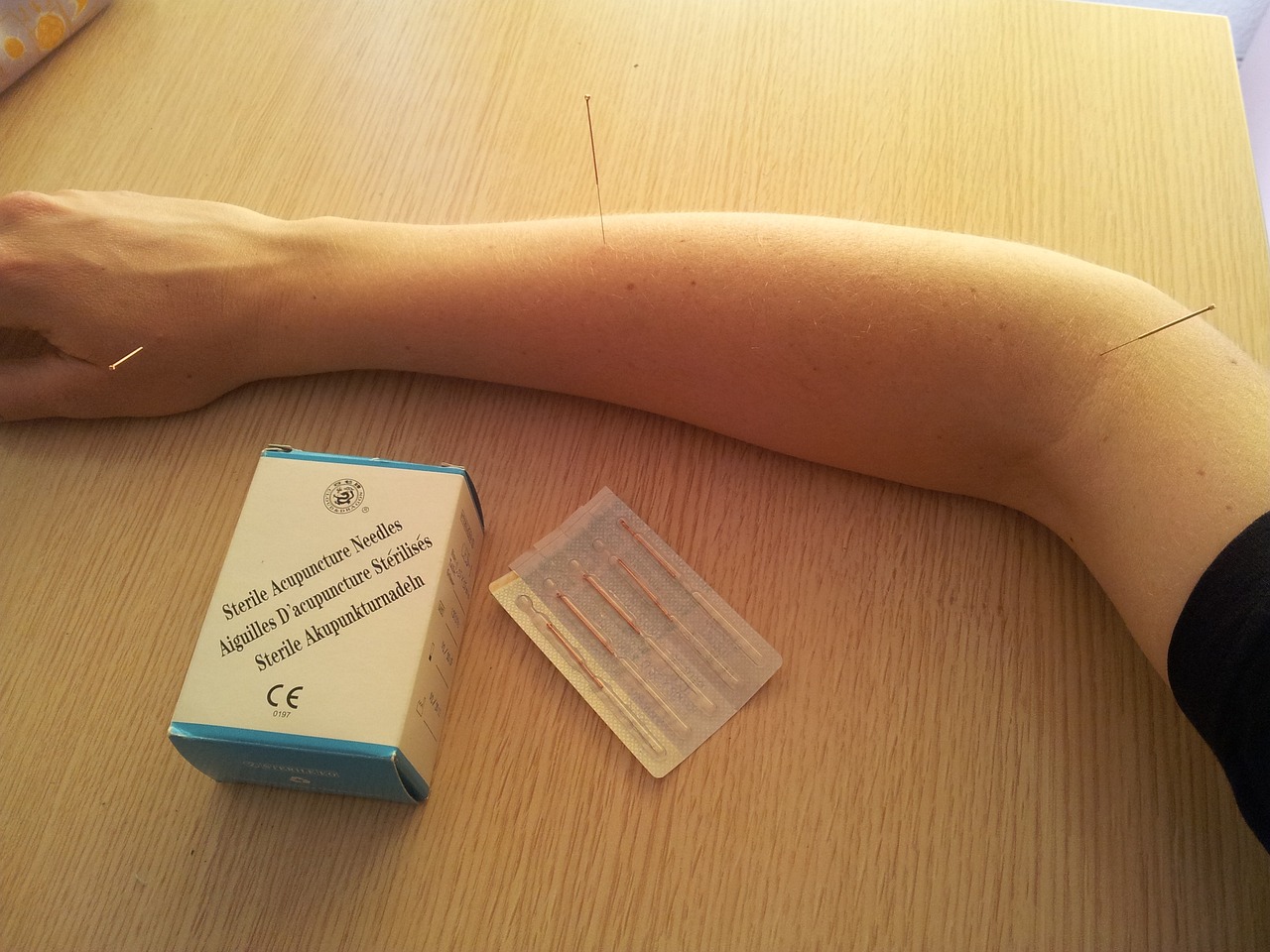
Common Misconceptions About Acupuncture
Acupuncture, despite its rich history and growing acceptance in the medical community, is still shrouded in a cloud of misconceptions that can deter individuals from exploring its benefits. Many people view acupuncture as a mysterious or even dangerous practice, often fueled by myths that have persisted over the years. One of the most prevalent misconceptions is that acupuncture is merely a form of witchcraft or superstition. In reality, acupuncture is rooted in a sophisticated understanding of the human body and its energy systems, developed over thousands of years.
Another common myth is the belief that acupuncture is painful. Many people envision needles piercing their skin with excruciating force. However, acupuncture needles are incredibly fine—much thinner than a typical injection needle. Most patients report feeling little to no discomfort when the needles are inserted. Instead of pain, many experience a sense of relaxation, akin to a gentle massage, as the treatment progresses.
Moreover, some individuals question the effectiveness of acupuncture, dismissing it as a placebo effect. While it's true that the placebo effect can play a role in any healing process, numerous scientific studies have demonstrated that acupuncture can provide significant relief for various conditions, including chronic pain, anxiety, and even digestive issues. The key lies in understanding that acupuncture triggers physiological responses in the body, activating natural healing processes that go beyond mere suggestion.
Addressing these misconceptions is crucial for fostering a more accurate understanding of acupuncture. Here are a few common myths debunked:
- Myth 1: Acupuncture is only for pain relief.
Truth: While it is well-known for pain management, acupuncture can also help with stress relief, digestive issues, and overall wellness. - Myth 2: Acupuncture is unsafe.
Truth: When performed by a qualified practitioner using sterile needles, acupuncture is considered a safe treatment with minimal risks. - Myth 3: Acupuncture is only effective for certain people.
Truth: Individuals of all ages and backgrounds can benefit from acupuncture, provided they receive appropriate treatment tailored to their needs.
Understanding these misconceptions is essential for anyone considering acupuncture as a treatment option. By dispelling myths and highlighting the realities of this ancient practice, we can encourage more people to explore its potential benefits. In doing so, we pave the way for a more holistic approach to health that embraces the interconnectedness of body, mind, and spirit.
To further clarify some common uncertainties, here are a few frequently asked questions about acupuncture:
- Q: How many sessions will I need?
A: The number of sessions varies based on individual conditions, but many people notice improvements after just a few treatments. - Q: Can anyone perform acupuncture?
A: No, it is essential to seek treatment from a licensed and trained practitioner to ensure safety and efficacy. - Q: Is acupuncture covered by insurance?
A: Many insurance plans now cover acupuncture; it's best to check with your provider for specific details.
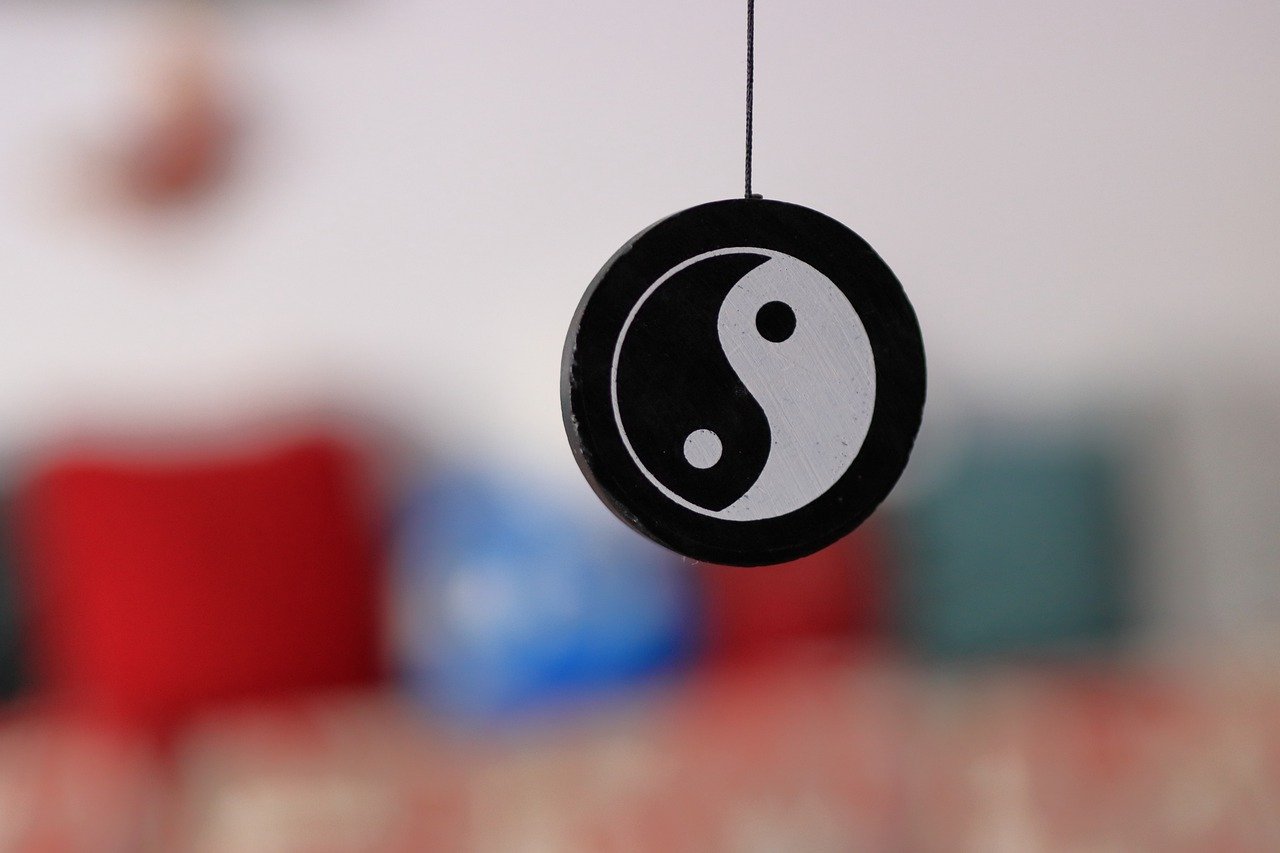
Safety and Risks
When considering acupuncture, one of the most pressing questions that arise is about its safety and potential risks. Many people are hesitant to try acupuncture due to misconceptions about its dangers, often stemming from a lack of understanding or misinformation. However, when performed by a qualified and licensed practitioner, acupuncture is generally regarded as a safe treatment option. In fact, the World Health Organization (WHO) has recognized acupuncture as a viable therapeutic method for a variety of health issues.
To ensure a positive experience, it's crucial to choose a practitioner who adheres to strict hygiene standards and uses sterile, single-use needles. This minimizes the risk of infection, which is a common concern among those new to acupuncture. Furthermore, practitioners should be trained in anatomy and physiology, allowing them to avoid sensitive areas that could lead to complications.
While acupuncture is largely safe, there are some potential risks that individuals should be aware of:
- Bruising and Soreness: After treatment, some patients may experience minor bruising or soreness at the needle sites. This is typically temporary and resolves quickly.
- Pneumothorax: Though rare, improper needle placement in the chest area can lead to a collapsed lung. This is why it's essential to have a skilled practitioner.
- Infections: Using non-sterile needles can lead to infections, although this risk is minimal when using licensed acupuncturists.
- Worsening Symptoms: Some individuals may initially feel worse after a treatment, but this can be a part of the healing process as the body adjusts.
It's also important to note that certain individuals, such as those with bleeding disorders or those who are pregnant, should consult their healthcare provider before undergoing acupuncture. By discussing any pre-existing conditions or concerns with both the acupuncturist and their primary care physician, patients can ensure a safe and beneficial experience.
In summary, while there are risks associated with acupuncture, they are generally low when the treatment is performed by a qualified professional. The benefits often outweigh the potential downsides, especially for those seeking relief from chronic pain, anxiety, or other health issues. As with any treatment, being informed and choosing the right practitioner can lead to a positive outcome.
Here are some common questions that people have about acupuncture:
- Is acupuncture painful? Most patients report feeling little to no pain during the insertion of the needles. Some may feel a slight pinch or pressure, but it is generally considered a comfortable experience.
- How many sessions will I need? The number of sessions varies depending on the individual and their specific condition. Many people notice improvements after a few sessions, while chronic conditions may require ongoing treatment.
- Can acupuncture be used alongside other treatments? Yes! Acupuncture can be a complementary therapy to conventional medicine, enhancing overall treatment plans without interfering with other medications.
- What should I expect during my first visit? During your initial appointment, the acupuncturist will conduct a thorough assessment of your health history, discuss your symptoms, and create a personalized treatment plan.

Effectiveness for Various Conditions
Acupuncture has gained recognition as a powerful tool in addressing a variety of health conditions, demonstrating its versatility beyond traditional practices. Many people are surprised to learn that acupuncture isn't just about relieving pain; it can also play a significant role in treating conditions like anxiety, digestive issues, and even insomnia. Imagine your body as an intricate network of roads, where energy flows like traffic. When there are blockages or disruptions, it can lead to various ailments. Acupuncture aims to clear these blockages, allowing for a smoother flow of energy that promotes healing and wellness.
For instance, chronic pain is one of the most common reasons people seek acupuncture treatment. Research has shown that acupuncture can effectively reduce pain levels in conditions such as arthritis, migraines, and lower back pain. A study published in the Archives of Internal Medicine found that acupuncture was significantly more effective than no treatment for chronic pain conditions. This is because acupuncture stimulates the release of endogenous opioids, which are natural painkillers produced by the body.
Furthermore, acupuncture has shown promising results in managing anxiety and stress. In a world where mental health issues are on the rise, acupuncture offers a natural alternative to pharmaceuticals. By targeting specific points related to emotional well-being, acupuncture can help balance neurotransmitters like serotonin and dopamine, promoting a sense of calm and stability. A systematic review in the Journal of Alternative and Complementary Medicine highlighted that acupuncture significantly reduces anxiety levels, making it a valuable option for those seeking holistic mental health support.
Digestive issues are another area where acupuncture shines. Conditions such as irritable bowel syndrome (IBS) and acid reflux can be debilitating, affecting daily life and overall wellness. Acupuncture helps regulate the digestive system by improving circulation to the gastrointestinal tract and enhancing the body’s natural healing processes. A clinical trial published in the American Journal of Gastroenterology found that patients receiving acupuncture for IBS reported significant improvements in symptoms compared to those who did not receive treatment.
To summarize, the effectiveness of acupuncture spans a wide range of conditions, making it a beneficial addition to modern healthcare. Here’s a quick overview of some conditions that have been positively impacted by acupuncture:
| Condition | Effectiveness |
|---|---|
| Chronic Pain | Significant reduction in pain levels |
| Anxiety | Natural reduction in anxiety levels |
| Digestive Issues | Improved symptoms and gastrointestinal health |
| Insomnia | Enhanced sleep quality and duration |
As we continue to explore the effectiveness of acupuncture for various conditions, it’s essential to approach it with an open mind. While it may not be a cure-all, its holistic nature offers a unique perspective on health that aligns with the interconnectedness of body, mind, and spirit. By integrating acupuncture into your wellness routine, you may discover new avenues for healing and improved quality of life.
- Is acupuncture safe? Yes, when performed by a licensed practitioner, acupuncture is considered safe with minimal side effects.
- How many sessions do I need? The number of sessions varies depending on the condition being treated, but many people notice improvement within a few sessions.
- Does acupuncture hurt? Most people report feeling little to no pain during the insertion of needles, and many find the experience relaxing.
- Can acupuncture be used alongside other treatments? Yes, acupuncture can complement other medical treatments, enhancing overall effectiveness.
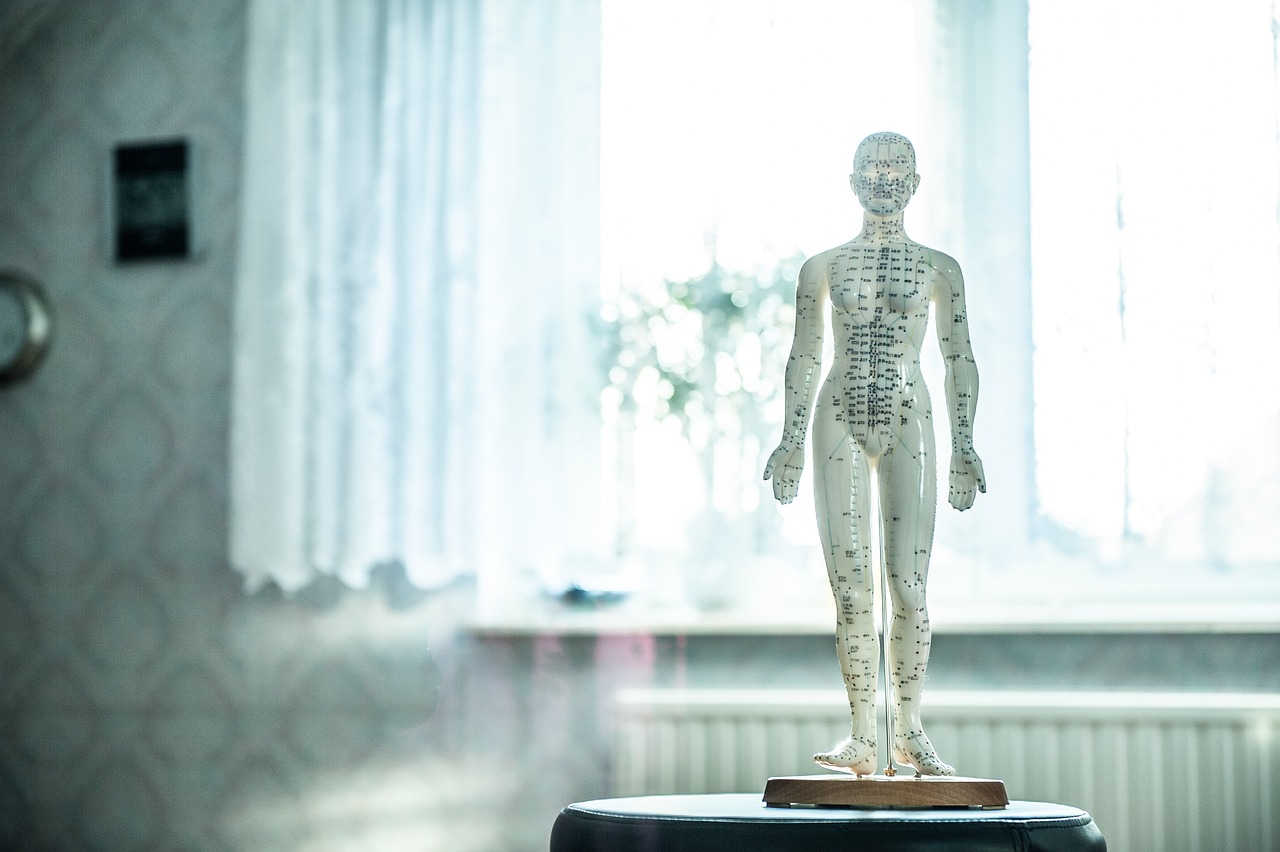
The Holistic Approach of Acupuncture
Acupuncture is not just about needles and points; it embodies a holistic philosophy that emphasizes the interconnectedness of the body, mind, and spirit. Imagine your body as a complex symphony, where each instrument plays a vital role in creating harmony. When one instrument is out of tune, the entire performance can suffer. Similarly, acupuncture seeks to restore balance and harmony within the body by addressing not only physical ailments but also emotional and spiritual well-being.
At its core, acupuncture operates on the principle that our health is a reflection of the balance between various forces within us. Traditional Chinese Medicine (TCM) teaches that energy, or Qi (pronounced "chee"), flows through specific pathways known as meridians. When this energy is blocked or depleted, it can lead to illness. Acupuncture aims to unblock these pathways, allowing Qi to flow freely and promoting healing. This approach is particularly significant in today’s fast-paced world, where stress and anxiety can disrupt our natural balance.
Moreover, acupuncture takes into account the individuality of each patient. Just as no two fingerprints are alike, the causes of ailments can vary significantly from person to person. Acupuncturists assess each individual's unique condition, lifestyle, and emotional state to create a personalized treatment plan. This tailored approach not only addresses symptoms but also fosters a deeper understanding of one’s overall health.
Incorporating acupuncture into a broader wellness strategy can yield remarkable benefits. For instance, many practitioners advocate for a combination of acupuncture with other holistic practices such as herbal medicine, nutrition, and mindfulness techniques. This multi-faceted approach to health promotes not just recovery from illness but also preventive care. Here are some of the key components of a holistic approach to health:
- Physical Health: Addressing bodily ailments through acupuncture can relieve pain, improve circulation, and enhance overall function.
- Mental Well-being: Acupuncture has been shown to reduce stress and anxiety, contributing to a more peaceful state of mind.
- Emotional Balance: By promoting the flow of Qi, acupuncture can help regulate emotions and improve mood.
- Spiritual Connection: Many practitioners emphasize the importance of aligning one’s spirit with their physical health for comprehensive well-being.
Furthermore, the holistic approach of acupuncture aligns beautifully with the principles of preventive care. In a world where we often wait until we’re unwell to seek help, acupuncture encourages us to take proactive steps toward maintaining our health. By integrating regular acupuncture sessions into our lives, we can not only address current health issues but also strengthen our bodies against future ailments.
In conclusion, the holistic philosophy of acupuncture serves as a reminder that health is not merely the absence of disease but a vibrant state of balance and harmony. By recognizing the intricate connections between our physical, mental, and spiritual selves, acupuncture opens the door to a more comprehensive understanding of wellness. It invites us to embrace a lifestyle that nurtures all aspects of our being, ultimately leading to a richer, more fulfilling life.
Q: Is acupuncture painful?
A: Most people find acupuncture to be a relaxing experience. The needles used are very thin, and many patients report feeling little to no discomfort.
Q: How many sessions will I need?
A: The number of sessions varies depending on the individual and the condition being treated. Many people notice improvements after a few sessions, but chronic issues may require ongoing treatment.
Q: Can acupuncture be used alongside other treatments?
A: Yes! Acupuncture is often used as a complementary therapy alongside conventional medical treatments, enhancing overall effectiveness.
Q: Are there any side effects?
A: Acupuncture is generally considered safe when performed by a qualified practitioner. Some may experience mild bruising or soreness at the needle site.
Frequently Asked Questions
- What is acupuncture and how does it work?
Acupuncture is a traditional Chinese medicine practice that involves inserting thin needles into specific points on the body. It aims to balance the body's energy, known as "Qi" (pronounced "chee"), and stimulate the nervous system. By doing so, it can help release endorphins and neurotransmitters, promoting pain relief and overall wellness.
- Is acupuncture safe?
Yes, acupuncture is generally considered safe when performed by a qualified practitioner. However, like any medical treatment, it does carry some risks. It's essential to choose a licensed acupuncturist who follows proper hygiene practices to minimize any potential side effects.
- What conditions can acupuncture help treat?
Acupuncture has been shown to be effective for various conditions, including chronic pain, migraines, anxiety, stress, digestive issues, and even insomnia. Many people use it as a complementary therapy alongside conventional treatments.
- How many sessions of acupuncture are needed for results?
The number of sessions required varies by individual and condition. Some may feel relief after just one session, while others might need several treatments over weeks or months to achieve optimal results. Your acupuncturist will tailor a treatment plan based on your specific needs.
- Does acupuncture hurt?
Most people experience little to no pain during acupuncture. The needles used are very thin, and many patients report feeling a slight sensation or pressure at the insertion points. Overall, many find the experience quite relaxing.
- Can acupuncture be used alongside other treatments?
Absolutely! Acupuncture is often used in conjunction with other medical treatments and therapies. It can enhance the effectiveness of conventional medicine and provide additional relief for various health issues.
- Are there any side effects associated with acupuncture?
While side effects are rare, some individuals may experience minor bruising, soreness, or fatigue after a session. These effects are usually temporary and resolve quickly. Always discuss any concerns with your acupuncturist before starting treatment.
- What should I expect during my first acupuncture session?
During your first visit, the acupuncturist will conduct a thorough assessment, including a health history review and possibly a physical examination. This helps them create a personalized treatment plan. You'll then receive your first acupuncture treatment, which typically lasts about 30 to 60 minutes.
- Is there scientific evidence supporting acupuncture?
Yes, recent research has shown that acupuncture can be effective for various conditions, particularly in pain management and rehabilitation. Clinical studies continue to explore its mechanisms and benefits, helping to validate its place in modern medicine.
- How does acupuncture promote a holistic approach to health?
Acupuncture emphasizes the interconnectedness of the body, mind, and spirit. By addressing not just physical symptoms but also emotional and mental well-being, it promotes a comprehensive approach to health, aligning with preventive care and overall wellness strategies.




